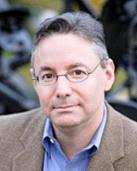That’s a lot of change. And, as journalist and author Alan Deutschman points out in his new book, “Change or Die,” when faced with a life or death situation that requires change…most people still won’t budge. Alan studied the few folks that successfully changed their entrenched behavior and distilled their secrets in his book.
How can you strengthen your adaptability and ability to change? Exercise your change muscles.
Alan agreed to share some thoughts on this for us. He writes:
“When Andrew asked me how my recently-published book “Change or Die: The Three Keys to Change at Work and in Life" would apply to professional service firms, I immediately thought of the interview I conducted with Dr. Michael Merzenich, a pioneering neuroscientist at the University of California at San Francisco, and what “Merz” (as he’s known) said about lawyers. The background to our conversation: I was asking him why it’s so hard for people to change how they think and act. Merz explained that change is basically about complex learning. If you maintain your “brain fitness,” then you’ll be up for the challenge. But brain fitness typically begins to decline at around age thirty for men and a little later for women. (Yes, just when you’ve come into a partnership or leadership role at the firm and you're facing the biggest challenges and responsibilities of your career.)
The way to keep up brain fitness is by continuing to learn. We all do that, right? Actually, few of us really do. If you’re the senior tax partner at a large corporate law firm, then reading the latest journal articles about the tax code isn’t what Merz means by “learning.” The law partner is already an expert at that kind of precise verbal reasoning. In that case, real learning might mean taking beginner’s lessons in downhill skiing or ballroom dancing. The idea is to escape from your expertise and become a novice in an entirely different pursuit. It’s about taking on challenges that you’ll be bad at for quite a while rather than always returning to pursuits you’ve been good at for many years. And it’s about using different kinds of intelligence—verbal, mechanical, physical, mathematical, and such. That’s why learning a foreign language or a musical instrument is a particularly valuable exercise for brain fitness. “My suggestion is learn Spanish or the oboe,” Merz says.
Now this doesn’t mean that you shouldn’t keep up with the latest twists in your professional field. But it does suggest that you’ll be more adaptable to new ways of thinking if you also invest some time, energy, and effort in new types of learning.
For a more detailed look at how to keep up brain fitness, check out the new book “Carved in Sand: When Attention Fails and Memory Fades in Midlife,” by Cathryn Jakobson Ramin. She had been a successful journalist in her twenties but felt that she was somehow losing her sharp edge in her thirties, which led her to explore the complex science behind memory and brain fitness.”- Alan Deutschman, Journalist and Author
Check out Alan’s writing and buy his books by going to http://www.alandeutschman.com/


No comments:
Post a Comment